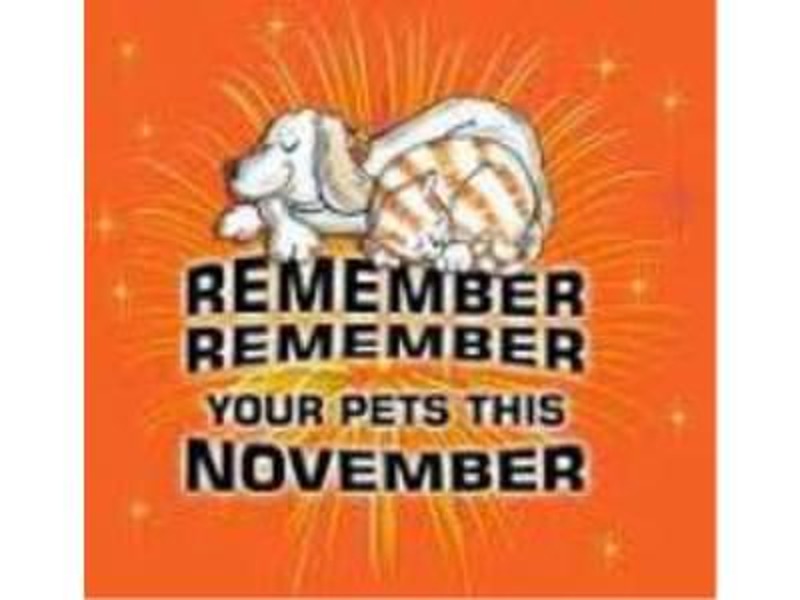· Stick to well organised non-back yard firework events. This reduces the number of ad-hoc firework blasts when your pets situation is not safely controlled, just making their firework fear worse.
· Understand that the treatments and products available for firework fear are preventative measures and need to be used while the animal is calm and before the fireworks start. Sometimes this can be a number of weeks.
· There is a wide range - natural products, veterinary medicines, pheromone-plug-ins, desensitising CDs and even special coats to help them feel secure.
· Avoid quick fix measures and look to the longer term at reducing your pet’s fear of fireworks, it takes time and patience and needs to be done when your pet is calm. (Avoid it completely by safely exposing your dog or cat to the sounds when they are young.)
· If you are staying at home don’t fuss over your pet when you hear fireworks. Act normally and play/distract them so their fear is not reinforced.
· Seek advice from your vets. This need not be expensive and may just mean a phone call to check you are doing the right thing for your own pet.
· On fireworks night get your pets settled at home before any of the fireworks start. Before it gets dark, shut curtains / leave lights on / have the radio playing loud enough so they will not hear any fireworks.
· Ensure your cat is able to get to its ‘safe place’ in the house so it can hide away from it all and perceive they are safe. If this is in a different room from above follow the curtains, lights and radio routine.
· Animals that are frightened/stressed can hurt themselves and possibly escape if left alone, results can be fatal. Frightened animals running loose are in great danger of being hit by a car.
· Don’t forget outdoor pets. Where needed rabbits and guinea pigs should be moved into a sheltered area, e.g. garage, to reduce noise exposure and reduce any visual exposure.
· Fireworks are very stressful for horses. Ideally they should be stabled where the fireworks are not visible. Keep them to their normal routine and check the field and stable for objects that could cause injury if your horse becomes frightened.
· Be very careful where fireworks are let off and bonfires are lit. Many farms will be storing hay and straw. Embers from the bonfires or debris from the fireworks may start a fire. This can be devastating too if there is any livestock shut in nearby buildings.
· Check on the wildlife. Hedgehogs are starting to hibernate and use the floor of bonfire piles as a place to sleep. Ideally move the pile away from its original place just before the event. Or poke the base of the pile with sticks listening carefully for any presence of rustling indicating you are disturbing a hedgehog. Hedgehog burns can be horrific.
· If you are letting off fireworks or organising an event think people AND animal safety


